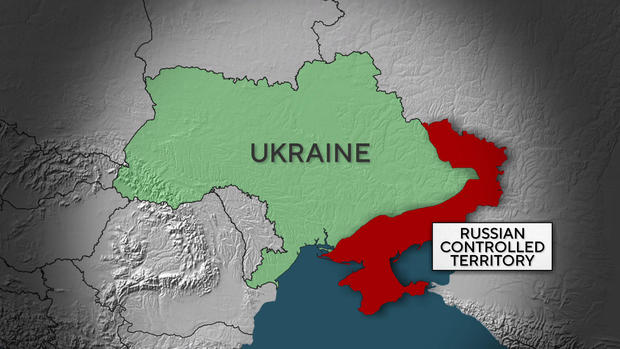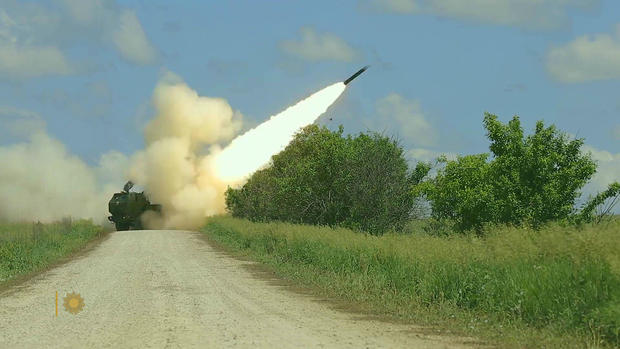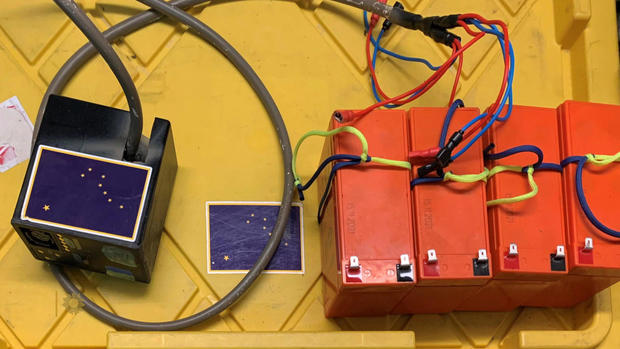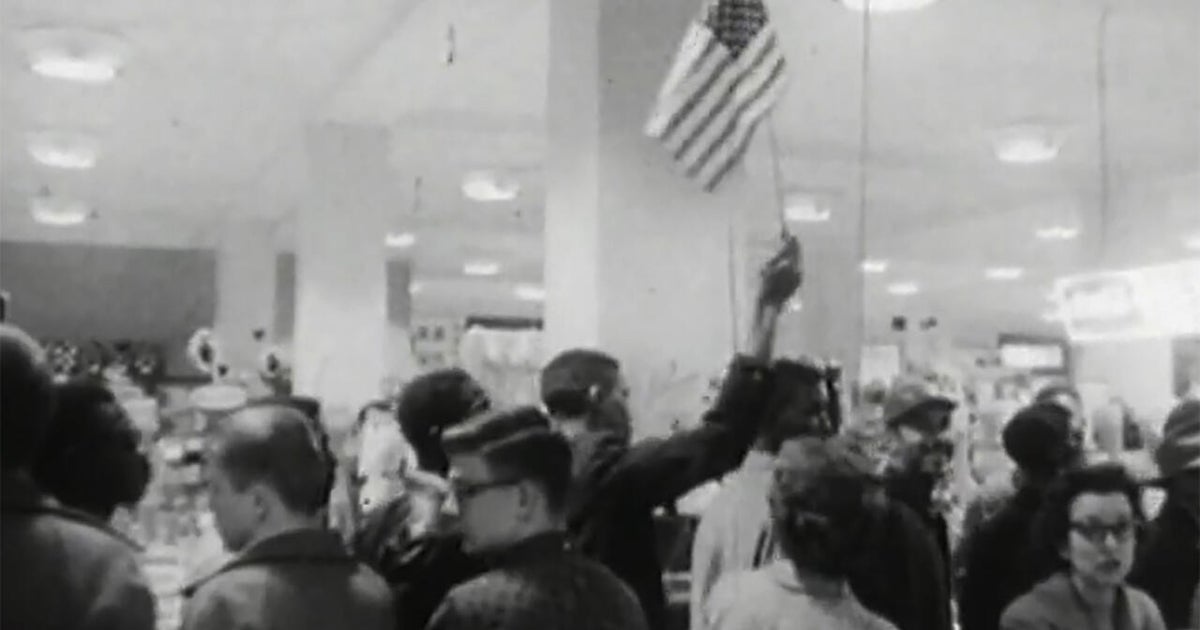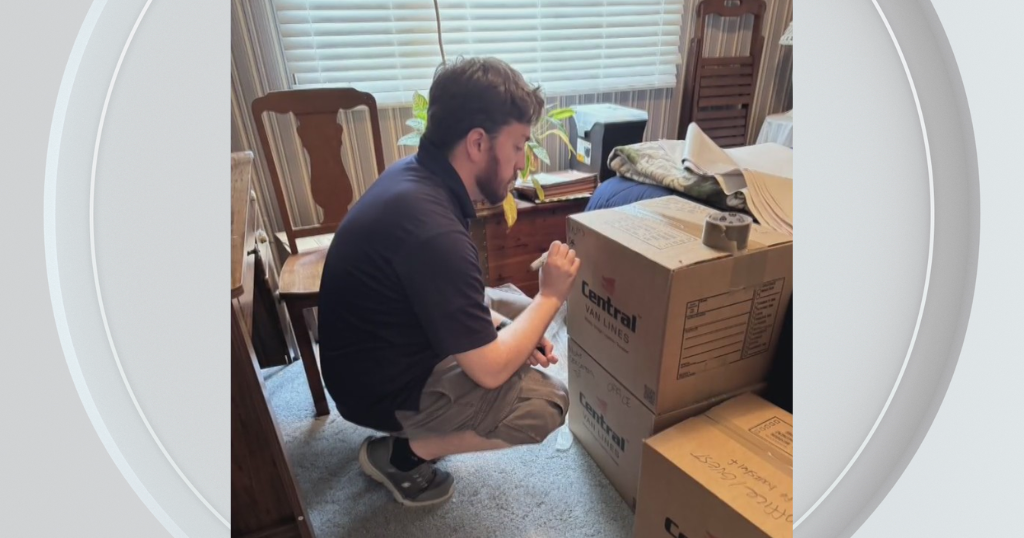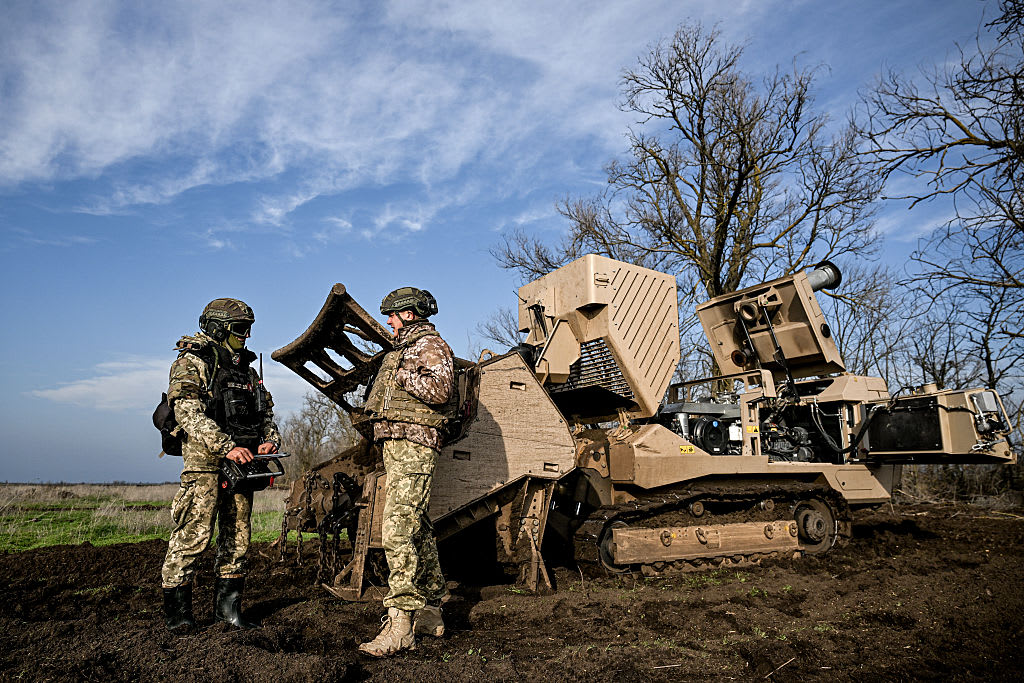Russia's invasion after 100 days: Ukraine goes on the offensive
The battle for Ukraine has turned into a slugfest of dueling artillery. It's not the lightning-quick takedown Russian President Vladimir Putin intended. But former CIA Director David Petraeus says there's no denying Russian progress.
"They have made grinding, costly, but substantial gains," he said. "They now control at least 20 percent of the country, if you include the areas, of course, that they took control of back in 2014."
It's a swath of territory that, if it were in the United States, would stretch from Orlando, Fla., to North Carolina.
CBS News national security correspondent David Martin asked, "How do you think Vladimir Putin feels about the first 100 days?"
"I'm not sure that he would look in the mirror and say, you know, this hasn't gone well at all," Petraeus replied. "He would regard this as very much a work in progress."
"If Russian forces are nowhere near as good as we thought they would be, are they still just good enough?"
"They are plastering the areas where they find Ukrainian resistance, but that can only go on for so long, because they're also taking very, very high losses."
By some estimates Russia has suffered 15,000 killed, and lost 1,000 tanks.
The Ukrainians, too, are suffering losses – 60 to 100 soldiers killed each day. But their equipment is being replenished by the U.S. and other Western countries … 108 Howitzers with a range up to 20 miles; four rocket systems which can fire salvos out to 40 miles.
Martin asked, "Is the U.S. giving Ukraine enough to just hold the line? Or are they giving them enough to actually take back lost territory?"
"I think that we and the other countries are giving Ukraine enough to take back lost territory," Petraeus said, "but again, that does remain to be seen."
New equipment is not much use unless the Ukrainians can effectively employ it in combat. The U.S. has sent thousands of Javelin anti-tank missiles to Ukraine, but when American veteran Mark Hayward arrived at the front in March as a volunteer, he found they were useless. "They couldn't even turn the things on to tell whether they worked," he said.
There were not enough batteries to power them.
"Because they didn't have batteries, you can't do anything other than put this darn thing in your arms room and wait for, well, if the tanks come after us, we'll pull it out and hope it works," Hayward said.
Using parts from broken computers, they designed a way to power the Javelins with motorcycle batteries. "It had a strong air of, 'We're making this up as we go along,'" he said.
Martin asked, "And you're making it up while the Russians were two kilometers away?"
"No; we were making it up while the Russians were 1.6 kilometers away," Hayward said.
The Javelins came out of storage, and 96 hours later, the Ukrainians recorded their first Russian tank kill.
- U.S. arms to Ukraine: Is it enough? ("Sunday Morning")
The Ukrainians have now gone on the offensive, both in the South (against the Russian-held city of Kherson), and in the north (outside Kharkiv).
Petreaus said it is an attempt to outflank the Russians: "If they can get through that and get into the soft spot of the Russian defenses, then it's very possible that they could just keep on going."
But Hayward believes the Ukrainians will face a stark reality: "I personally think that it is a foregone conclusion that the Ukrainian military will beat the Russian military," he said. "And when they finally retake those pieces of Ukraine that are currently occupied, they're going to find nothing left."
Story produced by Mary Walsh. Editor: George Pozderec.
See also:
- Ukraine vs. Russia: A modern-day David vs. Goliath story ("Sunday Morning")
- Russia's invasion of Ukraine is a test for America: John Dickerson ("Sunday Morning")
- What is Putin's endgame now? ("Sunday Morning")
- What are the prospects for pursuing Vladimir Putin for war crimes? ("Sunday Morning")
- Another Russian quagmire: Putin and the shadow of Afghanistan ("Sunday Morning")
